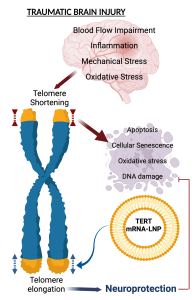Research Interests
- Neuroinflammation and Neurodegeneration
- Traumatic brain injury/concussions
- Alzheimer’s disease
- Therapeutic Strategies for Neuroprotection and Neurorestoration
- Gender differences in response to neuroinflammation
- Brain-liver axis
- Brain-gut-microbiome axis
- Brain-periphery communication
- Glia activation and neuronal death
- Cerebral ischemia
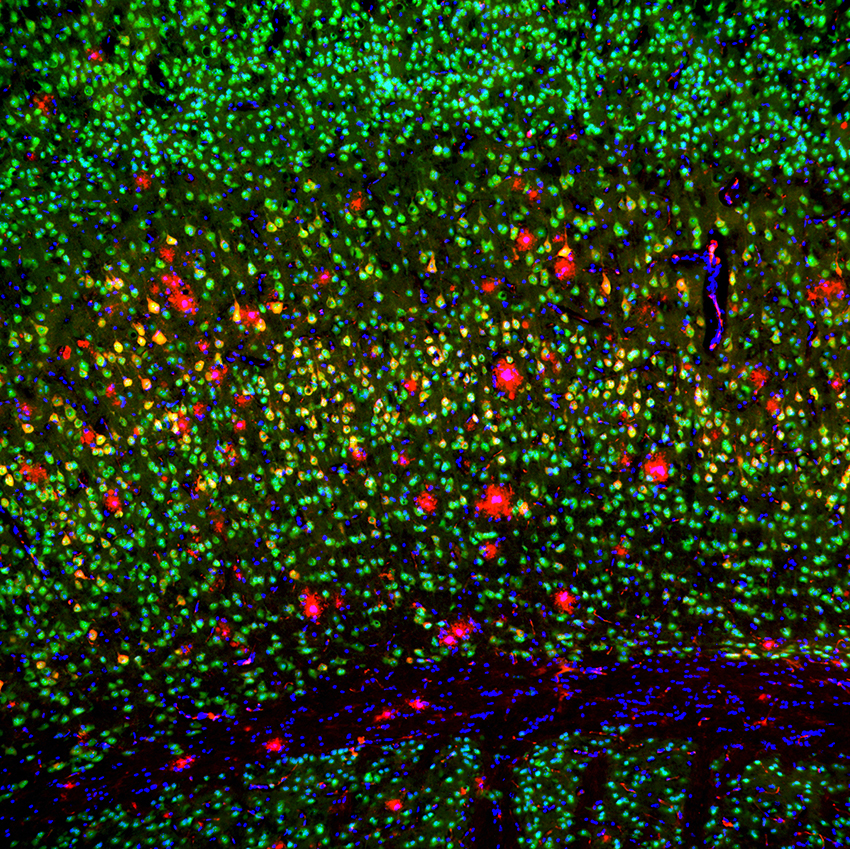
Current Projects
The Villapol Laboratory is interested in developing novel therapies for patients suffering from brain injury and Alzheimer’s disease. These are the main Research PROJECTS:
1. Microbiota-targeted approaches to resolve dysbiosis-induced AD neuropathology following brain injury.
|
2. The Role of Peripheral Inflammation on Brain Damage in a Sex-Dependent manner.
|
3. Gut microbiota diagnostic for Concussions in athletes who play contact sports.
Athletes who participate in contact sports are at risk of suffering from concussions, which can result in chronic headaches, nausea, anxiety and depression. Head injury also induces intestinal changes, including to microbes found in the gut; and the brain, in turn, can react to signals from the intestinal microbiome. This interaction is called the “brain-gut” axis. The results from this study will help us to identify temporal sequelae and biomarkers of head injury and will lead us to new treatments to prevent the consequences of concussions. Selected publications: Alterations to the gut microbiome after sport-related concussion in a collegiate football players cohort: A pilot study. Soriano S, Curry K, Sadrameli SS, Wang Q, Nute M, Reeves E, Kabir R, Wiese J, Criswell A, Schodrof S, Britz GW, Gadhia R, Podell K, Treangen T, Villapol S. Brain Behav Immun Health. 2022 Mar 1;21:100438. doi: 10.1016/j.bbih.2022.100438. eCollection 2022 May. PMID: 35284846 |
4. Biomimetic Nanoparticles as a Theranostic tool for Brain Injury and Alzheimer’s disease.
Selected publications: Biomimetic Nanoparticles as a Theranostic Tool for Traumatic Brain Injury. Zinger A, Soriano S, Baudo G, De Rosa E, Taraballi F, Villapol S. Adv Funct Mater. 2021 Jul 23;31(30):2100722. doi: 10.1002/adfm.202100722. Epub 2021 Mar 26. PMID: 34413716. |
5. Intranasal Delivery of Telomerase Reverse Transcriptase mRNA for Therapy of Traumatic Brain Injury.
|
6. Precision-based microbiota therapy for Brain Injuries and Alzheimer’s disease.Gut microbiota are an essential neuromodulator of gut-brain axis signaling and can impact brain inflammation and outcome after ischemic injury. Several studies have shown that microbiota composition, diversity, and richness can influence anxiety and depressive behaviors. The Villapol Lab has recently been focused on how TBI affects the function of peripheral systems and is studying how the brain injury alters the microbiome and the resultant impact on TBI-induced affective disorders. |
7. Spaceflight effects on the gut-brain-axis and immune function.Exposure to spaceflight conditions can substantially alter the gut microbiome, potentially impacting cognitive abilities and the health of the immune system. In our animal model, we expect to observe significant microbial imbalances, gastrointestinal inflammation, and neuroendocrine changes. Our research aims to determine if the radiation experienced during space travel contributes to cognitive impairments through gut dysbiosis. Additionally, we will explore if systemic inflammation influences neuroendocrine communication via the gut-brain axis. Marissa Burke is working on this exciting project as part of her Ph.D. |
8. Exploring Microbial Signatures for Neurological Manifestations in Long COVID Patients.Long-COVID in children and adolescents: a systematic review and meta-analyses. Lopez-Leon S, Wegman-Ostrosky T, Ayuzo Del Valle NC, Perelman C, Sepulveda R, Rebolledo PA, Cuapio A, Villapol S. Sci Rep. 2022 Jun 23;12(1):9950. doi: 10.1038/s41598-022-13495-5. PMID: 35739136 Free PMC article. More than 50 long-term effects of COVID-19: a systematic review and meta-analysis. Lopez-Leon S, Wegman-Ostrosky T, Perelman C, Sepulveda R, Rebolledo PA, Cuapio A, Villapol S. Sci Rep. 2021 Aug 9;11(1):16144. doi: 10.1038/s41598-021-95565-8. PMID: 34373540 |
9. CRISPR-lipid nanoparticles-based treatment for traumatic brain injury. |
10. Exploring novel synergies between gut microbiome alterations after deep brain stimulation and cellular transplantation as a potential treatment of Parkinson’s disease and Traumatic Brain Injury. |
Funding :
We are extremely thankful to all our supporters.
- Philanthropic funding from Paula and Rusty Walter and Walter Oil & Gas Corp Endowment at Houston Methodist.
- NFL Players Association.

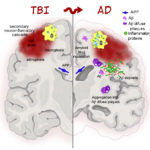
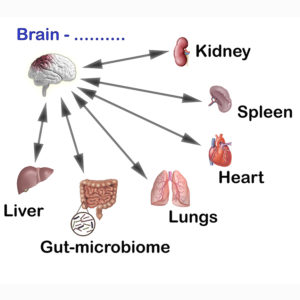
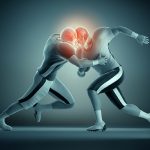
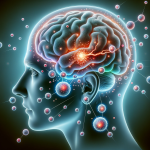 Biomimetic nanoparticles serve as a dual-purpose theranostic tool for brain injury and Alzheimer’s disease, combining treatment and diagnosis. Nanoparticles (NPs) have been used in multiple diseases as drug delivery tools with remarkable success due to their rapid diffusion and specificity in the target organ. They are designed to imitate natural biological systems, which improves their integration into the brain’s cellular framework. These nanoparticles can deliver targeted therapies while providing diagnostic imaging, offering a personalized and efficient approach to manage and monitor neurodegenerative conditions. We will use animal models of TBI and AD.
Biomimetic nanoparticles serve as a dual-purpose theranostic tool for brain injury and Alzheimer’s disease, combining treatment and diagnosis. Nanoparticles (NPs) have been used in multiple diseases as drug delivery tools with remarkable success due to their rapid diffusion and specificity in the target organ. They are designed to imitate natural biological systems, which improves their integration into the brain’s cellular framework. These nanoparticles can deliver targeted therapies while providing diagnostic imaging, offering a personalized and efficient approach to manage and monitor neurodegenerative conditions. We will use animal models of TBI and AD.